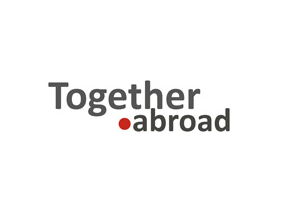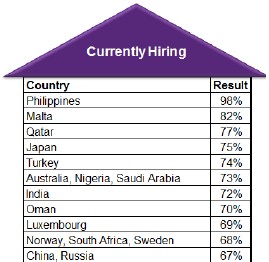
Skill-shortages and a slow down in hiring means international recruiters are facing a tough time.
A fall in hiring has impacted global recruitment firms. Dividends are static and short interest is on the rise, especially amongst Internet specialist recruiters. Unemployment in the U.S. has stayed above eight percent since 2009 and fewer jobs than anticipated were added in the last four months, according to U.S. Labour Department figures. Bloomberg reports the world’s biggest economy is expanding at its slowest post-recession rate in 60 years.
In the Eurozone the economic crisis continues to rage. Unemployment was at an all-time high in Spain earlier this year at 24.4 percent. While a surge in employment growth in the UK early this year has faded away rapidly. Survey data from Markit Economics showed that staff placements by recruitment consultants and agency billings from temp staff work in the UK fell in June at the fastest pace for three years.

UK companies are expanding globally and working to better cover their overseas staff.
As the crisis continues, an increasing number of UK businesses are looking to expand internationally. However, according to a recent Aviva UK study, companies are finding it difficult to offer appropriate benefits packages to their increased number of overseas staff. Teresa Rogers, business lead, Aviva UK Health says, “Relocation is not an easy task and staff rely on their employers to give them the appropriate support to make their relocation a success.”
Just over one-in-five employers (21%) say they’ve sent more employees abroad over the past few years. Another 13% are looking to increase overseas assignments in the near future. The BRIC nations continue to be popular and, reinforced by this study, 41% of UK employers are considering expansion into China or India and 25% are looking at Russian as an option.

Rising numbers of expats in South Korea are driving major companies to hire more foreigners in order to communicate with them.
As the number of foreigners living in South Korea supasses 1.1 million, more companies are attempting to reach them. The drive to communicate more often and effectively with these expats has caused many large Korean companies to hire more foreign workers.
KT is South Korea’s largest fixed-line service provider and is taking the lead in introducing tailored services for expats. These services include a Twitter account that runs alongside their two Korean language accounts. The English language account has over 1,700 followers, indicating the need for English or foreign language services.

The Olympic Park in London – An economic boost to the British capital. Source: Harriet Ward
The 2012 Olympic Games in London are expected to have a positive impact on employer hiring.
According to the recent Manpower Employment Outlook Survey, businesses in the British capital are planning to increase staff levels before the beginning of the Olympics.
Although many of the offered jobs would be temporary, the effect of the Olympic Games on the UK economy is expected to benefit the country in the long term.

Industry experts predict the Dutch job market will have to rely on foreign skilled workers in the future.
The Netherlands is predicted to suffer a shortage of 60,000 skilled workers by 2014. Less and less Dutch youngsters opt for technical courses, and many skilled workers retire in the coming years. Linda Groener from Together Abroad, a job portal for skilled internationals, explains how technical industries in Holland can attract skilled workers from abroad.
How can recruiters attract foreign workers?
You can start by communicating the advantages of working in the Netherlands. Most Dutch people speak English which makes is a lot easier to integrate, you don’t need to speak Dutch right away. In fact, 80% of jobs on our site don’t require a command of the Dutch language.
Indians are the most globally mobile of any nationality, followed by Brazilians and Chinese. So found HR consultant Ma Foi Randstad‘s latest global Work Monitor survey.
The results prove a change in the world’s expat workforce favoring the so-called BRIC countries.

Emerging markets have driven a general increase in hiring despite the euro crisis.
A recent issue of The Economist had a picture of a blazing euro-shaped comet on the cover, with big block text asking: IS IT THE END?
But when it comes to global hiring, things aren’t quite so grim. Antal International’s most recent Global Snapshot Survey actually found hiring levels above where they were this summer.
Overall, 55% of organizations worldwide were hiring in the third quarter, up from 52% in July. This would seem to bode well for anyone wanting work abroad.

Singapore has a reputation as an expat paradise, but that image may fade along with the days of lavish compensation.
Singapore could lose its status as a top expat destination as companies become less willing to pay out generous compensation packages.
Till now the country has consistently been rated one of the top destinations for expatriates. In fact, in 2010 HSBC’s Expat Explorer Survey ranked it #1 in the world. This year, however, Singapore didn’t even crack the top three.

Norway's oil industry will need an estimated 220,000 workers by 2014, most of them from abroad.
Norway’s oil and gas industry will need 220,000 new workers in the next three years to help meet rising demand, according to a story in the Nordic Labour Journal. The majority of these workers are expected to come from abroad.
As such, the Oslo Chamber of Commerce, Norwegian Business School (NBI) and intercultural consulting firm Kulturtolk will organize a global mobility conference to discuss the best ways to recruit foreign workers, as well as attract expat families to life in Norway.

